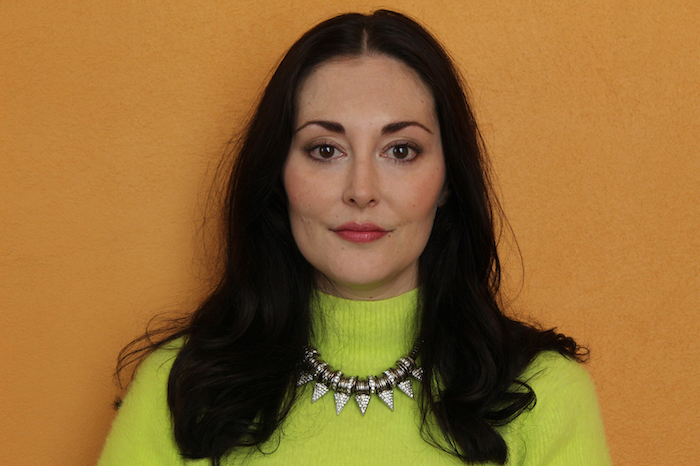Featured in

WHEN THE ORIGINAL Sex and the City moved to US Netflix earlier this year, people acted like it would be the first time Gen Z was exposed to the twenty-five-year-old series, which has been available on physical media, free-to-air channels and other streaming platforms since its final episode aired in 2004. But an increasingly conservative media environment, in which sex on film has dropped by almost 40 per cent since Carrie Bradshaw and co.’s heyday in 2000, means there was valid concern about how younger people would respond to the rampant sex that saw the show’s quartet sleep with ninety-four men and one woman (the series was notoriously queerphobic) across its six-season run. This led to jokes about how resident prude Charlotte York-Goldenblatt would be mother to a new generation.
A subset of this generation has become known as ‘puriteens’ for having a draconian attitude to sex and its portrayal in pop culture. While some of the assertions about puriteens are extreme, such as crying lack of consent when seeing fictional portrayals of sex on screen or being outraged at people calling Pedro Pascal ‘Daddy’, a report released last year about the viewing habits of Gen Z raised a good point. The Teens & Screens study by the Center for Scholars and Storytellers (CSS) at the University of California found that people between the ages of eighteen and twenty-four want to see more platonic relationships depicted on screen.
As a millennial brought up on an unbalanced diet of over-sexualised and shame-filled media, this is something I’ve often thought about in response to forced romance in movies and TV shows. For example, Olivia Wilde’s directorial debut, Booksmart, which celebrates its fifth anniversary this year, is about two best friends who, on their last night of high school, realise they spent too much time on academics while their bullies and crushes spent their final year partying and still got into the same schools. I didn’t love it for the simple fact that I would have preferred to watch Beanie Feldstein’s Molly and Kaitlyn Dever’s Amy hang out in their bedroom rather than chase said bullies and crushes (who, for the queer Amy, are problematically embodied by the same person).
On the other hand there’s Sex Education, the acclaimed British series that finished up its four-season run on Netflix last year. Despite its title, Sex Education was never overbearing in its varied renderings of sexual and gender identities and relationships – many of which were not sexual or romantic.
The show’s approach is much more reflective of how Gen Z is navigating their own relationships: having less sex than its parents did at the same age, according to another Californian study. It makes sense; we’re in an airborne pandemic and a cost-of-living crisis. And for those in the US where these studies were undertaken, reproductive rights have been rolled back. This means that penis-in-vagina sex, which has always come with the risk of pregnancy, is even more dicey. No wonder Gen Z, and particularly Gen Z women (many of whom are going ‘boysober’), want to eschew it in favour of friendship.
As Shon Faye writes in her Substack missive ‘On Celibacy’:
Relationships with men have often been unpleasant or simply disappointing for many women, women’s expectations have changed (a good thing) and men haven’t been able to keep up with this shift. If anything, the popularity of Andrew Tate et al suggests a huge renaissance for misogyny and entitlement among boys and young men, who are coached to angrily direct their own very real anxieties about their desirability and the ‘competitive’ dating market (there are more men on dating apps then there are women) back onto women.
But there’s also a decline in hanging out – we don’t have as many public spaces as earlier generations did. We shop online, movies are in cinemas for what feels like three minutes and social media has proliferated – though this can be a good thing when it comes to finding your people, who may not be physically close. And school being pushed onto Zoom for the better part of two years had a profound effect on the youths.
‘I really feel for younger people who had core years of their lives in which friendship should have been easiest not accessible to them,’ says Rhaina Cohen, author of The Other Significant Others: Reimagining Life with Friendship at the Center.
Some of that is the pandemic, some of that is [the normality] of people being on their screens all the time and to feel like that is an intrusion. There’s a lot of behavioural changes that have made low-level interactions unfamiliar to people, and if you’re not accustomed to developing friendships, and every dating interaction is mediated through an app, then maybe it’s harder in higher-level interactions to have that closeness.
Alaina Demopoulos, a US-based reporter for The Guardian who wrote about the hubbub when Sex and the City debuted on Netflix, thinks that the puritan hype was overblown. ‘It kind of felt like a manufactured hysteria because I never actually saw many young people online complaining,’ she says. (This conjures the more recent moral panic about Gen Z apparently thinking the sex scenes in Bridgerton were real. I could find no evidence of this, just responses to the rumour.) If anything, older media that centres on people with no phones in sight, just living in the moment, is a novelty that harks back to a simpler time, perhaps why many of these shows enjoyed renewed popularity among young people during lockdown, or why the Gen Z/Gen Alpha cusp character in Netflix’s apocalypse epic Leave the World Behind fixates on finding a way to watch the Friends finale while the world burns.
Demopolous acknowledges that while Sex and the City and its ilk are ‘super cringe’ now, friendship drives them. ‘That’s more of a fantasy and more desirable than romantic love – finding your people… They’re always together! Even in my very strong friendships, I’m lucky if I see them once a month!’
Charlotte, who Demopolous argues is a Gen Z icon, suggests that she, Carrie, Miranda and Samantha are each other’s soulmates, and anyone who’s ever watched a full episode of the show would tend to agree. Though most of them seek out and end up in long-term relationships, falling back on what Cohen calls ‘defaultamy’ and academic Dr Eleanor Wilkinson names ‘compulsory coupledom’, the show’s strength is in its platonic bonds. After all, most of the sex scenes are played for awkward laughs, and the rotating lovers are forgettable or terrible.
Instead of proffering faux outrage at the youths forgoing similar patterns to seek enrichment in other kinds of relationships, we should be happy they’re not repeating our mistakes. Cohen puts it thusly: ‘If [Gen Z is declaring], “I want to see the types of relationships I have reflected in the world [and in pop culture], and some of those are friendships,” that might be saying that culture is neglecting what in reality is a really important relationship.’
Image credit: Gaelle Marcel from Unsplash
Share article
About the author

Scarlett Harris
Scarlett Harris is a culture critic and author of A Diva Was a Female Version of a Wrestler: An Abbreviated Herstory of World Wrestling...